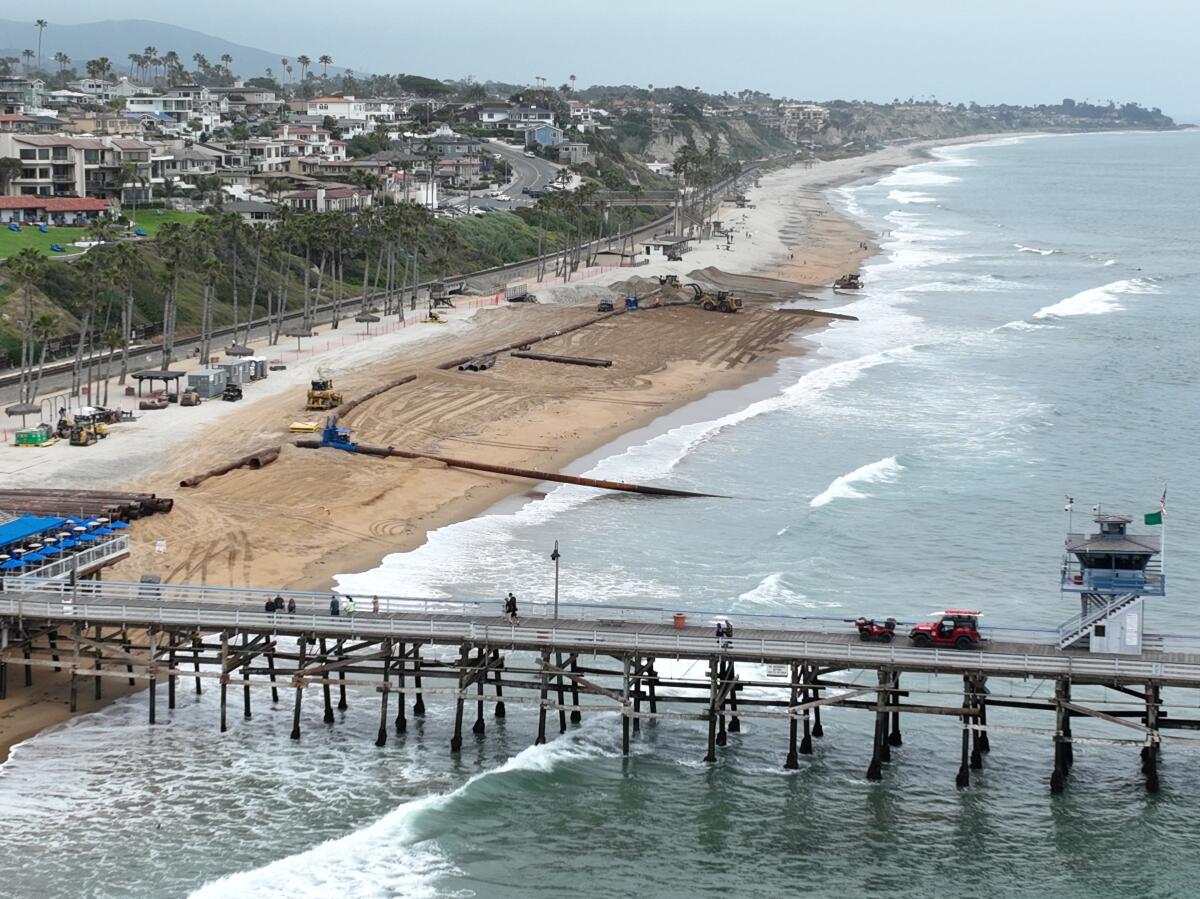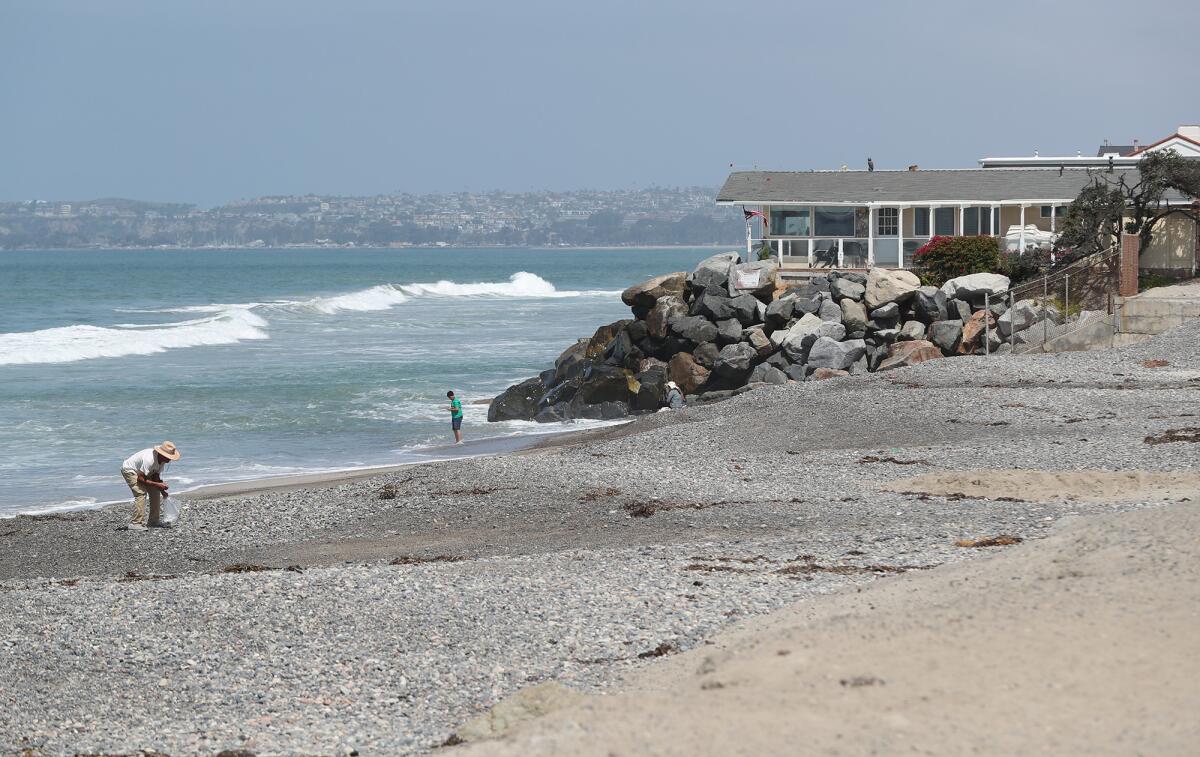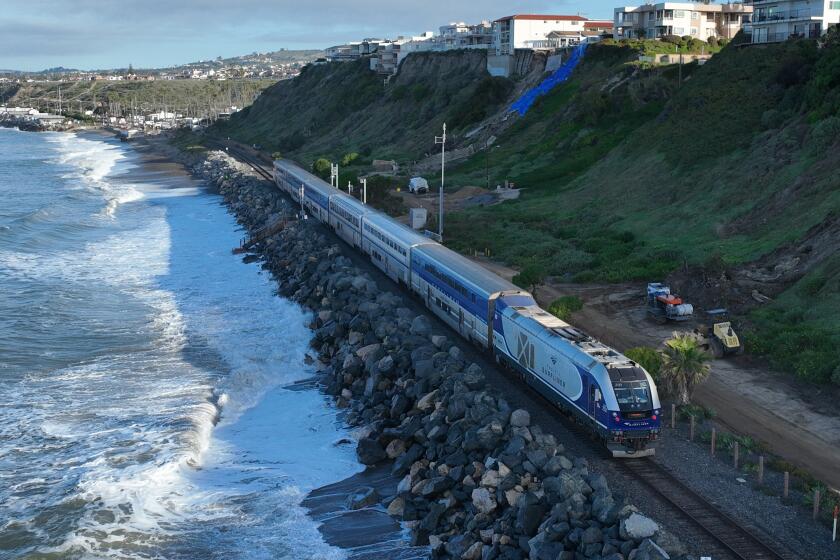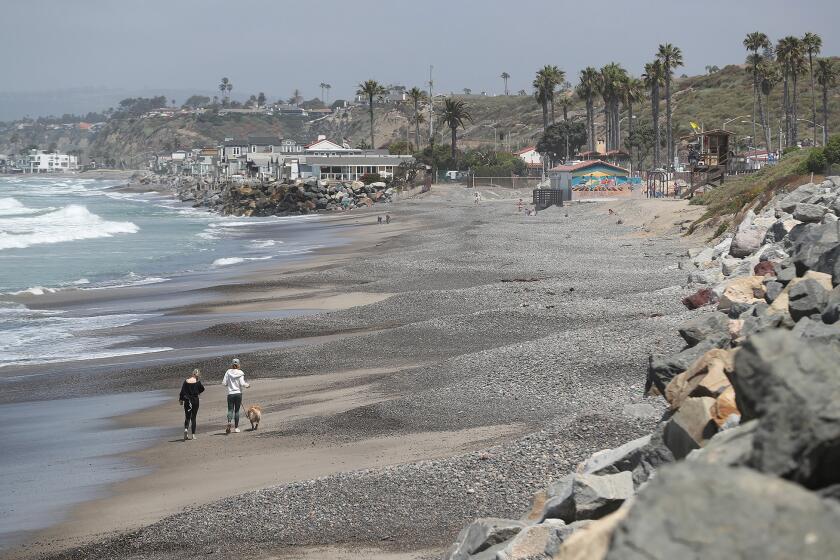San Clemente delays considering a sales tax measure for beach erosion projects

- Share via
If coastal erosion has made anything clear to San Clemente officials, it’s that staying a beach town is going to come at a steep cost.
By fall, the city has to scrounge up $2.9 million to complete the first phase of a long-awaited beach nourishment project being overseen by the U.S. Army Corps of Engineers.
Going forward, San Clemente will to have to share 50% of the costs with the federal government to continue the project over its cyclical 50-year lifespan.
But without brand-name hotels generating bed tax revenue along its vanishing beaches, San Clemente simply doesn’t have the money.
During a special City Council meeting on Wednesday, council members mulled over how to raise the needed funds, including putting a 1% local sales tax increase on the November ballot.
The Orange County Transportation Authority is now considering sand nourishment as part of a potential solution to guard San Clemente’s train tracks from eroding beaches and fragile bluffs.
San Clemente City Manager Andy Hall estimated that $2 million would have to be saved annually to cover a roughly $10-million cost every five to six years when the Army Corps resumes beach nourishment efforts.
That’s in addition to city-led projects, including a $2-million emergency sand replenishment effort that’s currently underway to shore up North Beach’s critically eroded coastline.
The combined sales tax rate in Orange County is 7.75%. City officials estimate that a 1% boost would generate more than $13.5 million annually.
San Clemente Mayor Victor Cabral signaled his support for a direct tax to fund a sand budget, as opposed to a tax that would go into the city’s general fund.
“The good thing about a direct tax is if you don’t spend the money, it doesn’t get spent somewhere else,” said Cabral in making the case. “It’s set aside for sand and the projects we designate.”
Most residents at the meeting voiced support for raising the local sales tax specifically to fund efforts to shore up San Clemente’s battered beaches.
“Truly, the only reason I pay my taxes is so I don’t go to prison,” Steve Lang told council members. “I vote 100% for a dedicated tax for sand.”

But convincing enough voters to approve it during a general election that’s poised to be polarized seemed too risky to other members of the council.
Councilman Mark Enmeier pointed to a city survey conducted in May that found 64% of residents supported a general tax measure, a mark too close to call for a direct tax, even when favorably considering the margin of error.
Enmeier supported the direct tax in principle but felt that a general tax measure funding public safety alongside beach sand projects was a safer bet, especially as it would only require a simple majority vote while a direct tax would require approval by more than two-thirds of the voters.
“I’m really worried because if this doesn’t pass, we don’t have a beach town,” he said.
Dump trucks are set to haul 30,000 cubic yards of sand to San Clemente’s critically eroded stretch of beach this summer to stave off risks associated with its vanishing coastline.
Councilman Chris Duncan, a Democrat running against Republican Assemblywoman Laurie Davis for AD-74 in November, railed against state officials, who he blamed for failing to help San Clemente face its coastal conundrums, especially as the vital Lossan corridor snakes through beachside railroad tracks that have been shuttered by repeated landslides.
“I know I’m disappointing a lot of my own supporters,” he said. “But I’m trying to be realistic. I’m trying to be practical and bring a comprehensive approach to this.”
Duncan pointed to two previous ballot measures in San Clemente proposing to raise hotel bed taxes that both failed.
After a brief recess, he moved to indefinitely table discussion on a tax measure but found only the support of Councilman Steve Knoblock.
Cabral continued to express optimism in San Clemente voters passing a sand-only tax.
“I’m confident that we can get this supermajority,” Cabral countered. “I will do whatever I can to convince people.”
Cabral made a motion for a direct tax measure to be placed on the agenda for the upcoming Aug. 6 council meeting, where it was later clarified by Hall that only three votes would be needed to get it on the ballot.
Two other council members agreed and voted to resume the conversation next month.
All the latest on Orange County from Orange County.
Get our free TimesOC newsletter.
You may occasionally receive promotional content from the Daily Pilot.






